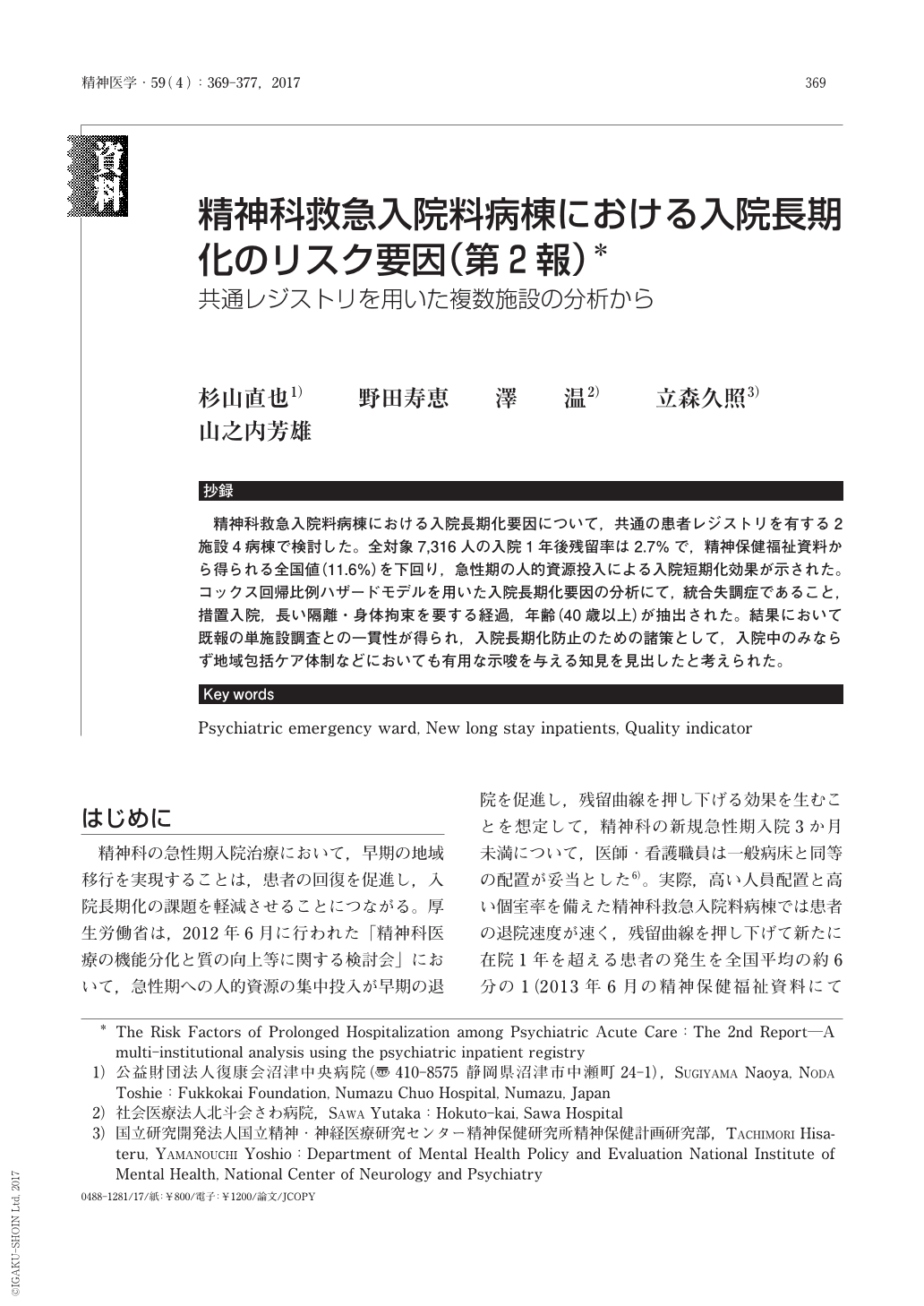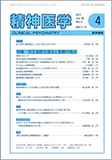Japanese
English
- 有料閲覧
- Abstract 文献概要
- 1ページ目 Look Inside
- 参考文献 Reference
抄録
精神科救急入院料病棟における入院長期化要因について,共通の患者レジストリを有する2施設4病棟で検討した。全対象7,316人の入院1年後残留率は2.7%で,精神保健福祉資料から得られる全国値(11.6%)を下回り,急性期の人的資源投入による入院短期化効果が示された。コックス回帰比例ハザードモデルを用いた入院長期化要因の分析にて,統合失調症であること,措置入院,長い隔離・身体拘束を要する経過,年齢(40歳以上)が抽出された。結果において既報の単施設調査との一貫性が得られ,入院長期化防止のための諸策として,入院中のみならず地域包括ケア体制などにおいても有用な示唆を与える知見を見出したと考えられた。
We investigated about the factors relating to long hospitalization, among 4 psychiatric emergency care units from 2 facilities, which shares identical inpatients registry. Residual rate at one year was 2.7%, which is obviously fewer than national data (11.6%) calculated from the Government Mental Hearth Report, indicating the efficacy of higher human resource at the acute care phase implementing at emergency care units. Cox regression analysis revealed that the factors relating to long hospitalization are being schizophrenia, compulsory hospitalization, clinical condition requiring longer seclusion or restraint and age (over 40 years old). We obtained consistent data from the investigating at plural facilities, which could provide good suggestions not only to inpatient care strategies but also to community mental health care system to be able to prevent long hospitalization.

Copyright © 2017, Igaku-Shoin Ltd. All rights reserved.


